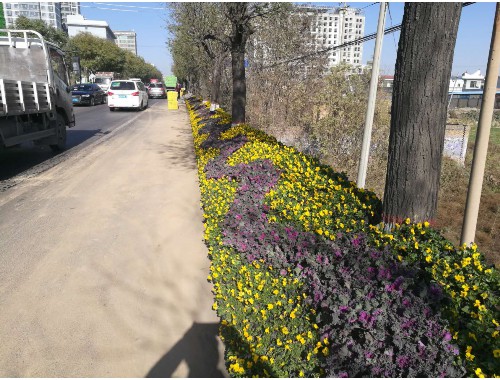Gardening and landscaping are essential elements of urban development. They are responsible for creating a green and pleasant environment for people to live in. Garden and landscape engineers play a vital role in designing, planning, and implementing green spaces in urban areas. In this article, we will discuss the importance of garden and landscape engineering, the role of a garden and landscape engineer, and the skills required to become a successful garden and landscape engineer.
Importance of Garden and Landscape Engineering
Garden and landscape engineering is crucial for creating sustainable and livable cities. It is responsible for creating green spaces that provide numerous benefits to the environment and people. Green spaces help to reduce air pollution, mitigate the urban heat island effect, improve water quality, and provide habitats for wildlife. They also provide recreational spaces for people to relax and enjoy nature.金年会金字招牌诚信至上
The Role of a Garden and Landscape Engineer
Garden and landscape engineers are responsible for designing, planning, and implementing green spaces in urban areas. They work closely with architects, urban planners, and other professionals to ensure that green spaces are integrated into the urban fabric. Their role includes:
1. Site Analysis: Garden and landscape engineers conduct site analysis to determine the soil type, topography, drainage, and other factors that may affect the design and implementation of green spaces.
2. Design: Garden and landscape engineers design green spaces that are aesthetically pleasing, functional, and sustainable. They consider factors such as the site's intended use, soil conditions, climate, and the availability of water.

3. Planning: Garden and landscape engineers develop plans for the implementation of green spaces. They consider factors such as budget, timeline, and the availability of resources.
4. Implementation: Garden and landscape engineers oversee the implementation of green spaces. They work closely with contractors, suppliers, and other professionals to ensure that the project is completed on time and within budget.
Skills Required to Become a Successful Garden and Landscape Engineer
To become a successful garden and landscape engineer, one must possess a combination of technical and soft skills. Technical skills include knowledge of horticulture, landscape design, irrigation systems, and project management. Soft skills include communication, leadership, and problem-solving skills. The following are some of the essential skills required to become a successful garden and landscape engineer:
1. Knowledge of Horticulture: Garden and landscape engineers must have a thorough understanding of plant biology, soil science, and horticultural practices. They should be able to identify different plant species and understand their growth requirements.
2. Landscape Design: Garden and landscape engineers should have a good understanding of landscape design principles. They should be able to create designs that are aesthetically pleasing, functional, and sustainable.
3. Irrigation Systems: Garden and landscape engineers should have a good understanding of irrigation systems. They should be able to design and install irrigation systems that are efficient and effective.
4. Project Management: Garden and landscape engineers should have good project management skills. They should be able to develop project plans, manage budgets, and oversee the implementation of projects.
5. Communication Skills: Garden and landscape engineers should have excellent communication skills. They should be able to communicate effectively with clients, contractors, and other professionals.
6. Leadership Skills: Garden and landscape engineers should have good leadership skills. They should be able to lead teams of professionals and motivate them to achieve project goals.
Conclusion
In conclusion, garden and landscape engineering is a vital profession that plays a significant role in creating sustainable and livable cities. Garden and landscape engineers are responsible for designing, planning, and implementing green spaces in urban areas. To become a successful garden and landscape engineer, one must possess a combination of technical and soft skills. These skills include knowledge of horticulture, landscape design, irrigation systems, project management, communication, and leadership skills.